A Student’s Guide to The Brearley School
ACADEMIC YEAR
2023–2024

ACADEMIC YEAR
2023–2024
She is independent and poised. She thrives on high expectations and learns for the joy of it. She believes in herself and dares to try hard things.
She has the confidence to lead and the skills to work as part of a team. She prizes her friendships and makes choices with a sense of balance and good judgment. There is a generosity about her and a desire to help others, whether they are in the next room or around the world.
What makes her this way? And how can so many girls share these traits when no two Brearley girls are alike? What makes each student here so much herself as well as part of a sisterhood that stretches throughout her life?
On the following pages, students from Lower School through Upper School invite you to get to know Brearley.
Who better to describe what makes a Brearley girl than Brearley girls themselves?
Welcome to Brearley. We’re so glad you’re here.
Any weekday morning, step into either school lobby and the truth of this line from our school song roars to life. Fueled by innate curiosity, surrounded by other bright, happy girls, here is where our spirit’s flame is fired. Stand in the swirl of the lobby to experience the joy and exhilaration of being immersed in an academic culture that takes girls and ideas seriously. Witness the unbridled exuberance of a school where students of all ages can’t wait to arrive and begin the day.



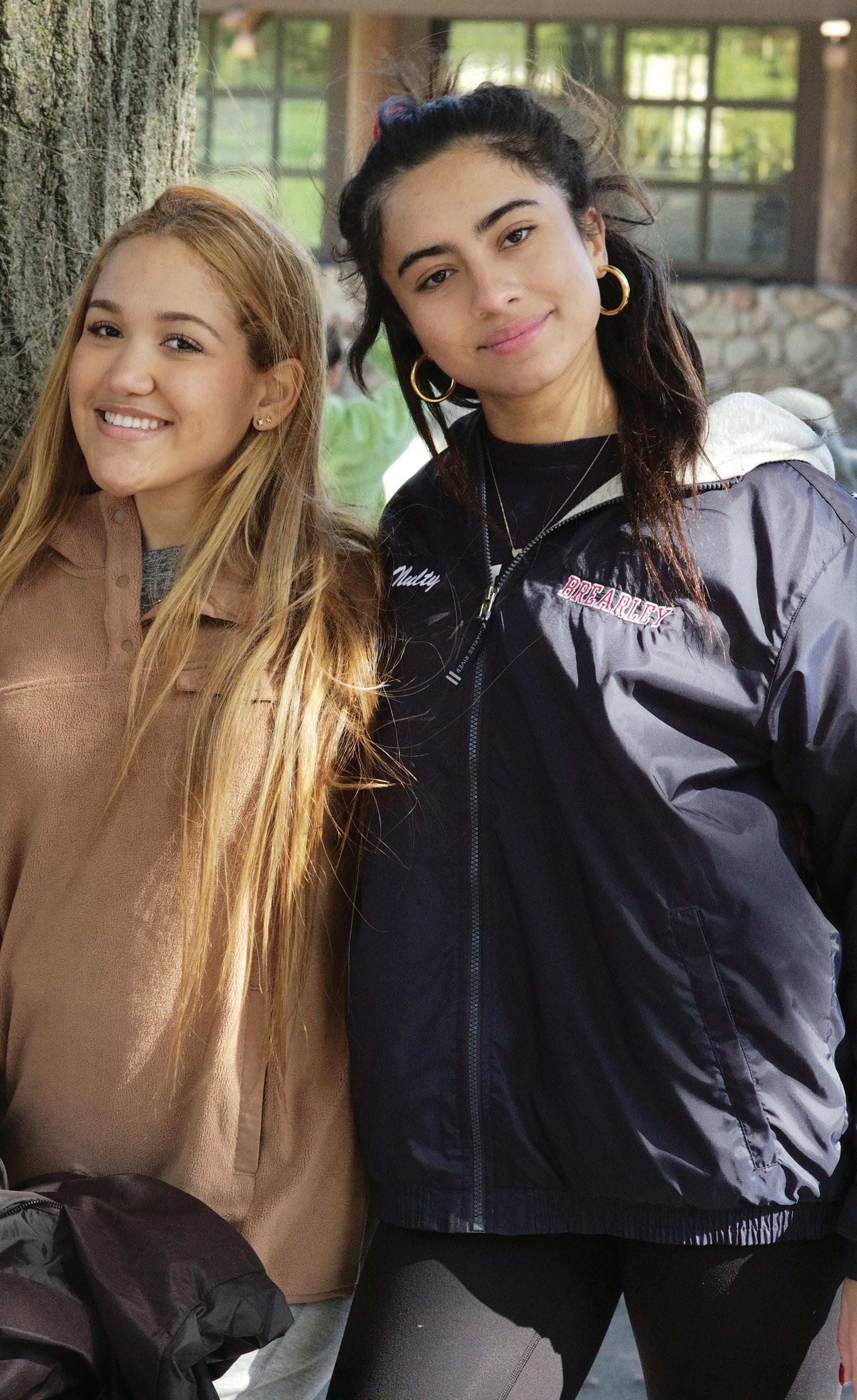
“I think the essence of this place is the eighth grader who is coming of age, trying to find her voice and discovering the space to do that—a very special safe space that I have never found again but carry with me wherever I go—especially when I’m the only voice of color, the only woman’s voice in the room.”

“We have the kind of closeness where you walk down 83rd Street and know everyone. When I get in the elevator, I’ve already greeted 15 or more friends.”
CLASS VII STUDENT


8:00
Arrive at school, meet with friends
8:15 Homeroom
8:30 History
9:25 Free Period
10:20
Self-Government Meeting
11:05 Math
12:15 Free Period
12:45 Lunch 1:15 English 2:10 Science 3:00 Pack up
3:15
Varsity Track Practice
5:30 Home
6:30
Cello Practice for Upper School Orchestra
7:00 Supper
7:30
Homework
10:00
Pack-up/Read for pleasure
10:30 Bed
“I really do think if school weren’t required, most of the people at Brearley would still show up every day.”
CLASS X STUDENT


7:30
Arrive for early drop-off in the library; listen to a story
8:00
Homeroom
8:15
Gathering in Performance Hall; author visit
9:00
Language Arts
9:45 Math
10:25
Snack
10:45 Science
11:25
Lunch
12:15
FunFit
1:00
Work and Play
1:45
Outdoor play
2:25
Closing circle and pack up
2:45
Dismissal
3:00
Optional after school program: Beaver Den
4:15
Dismissal or optional extended day
6:00
Supper
7:00
Parent Read Aloud
7:30
Bed


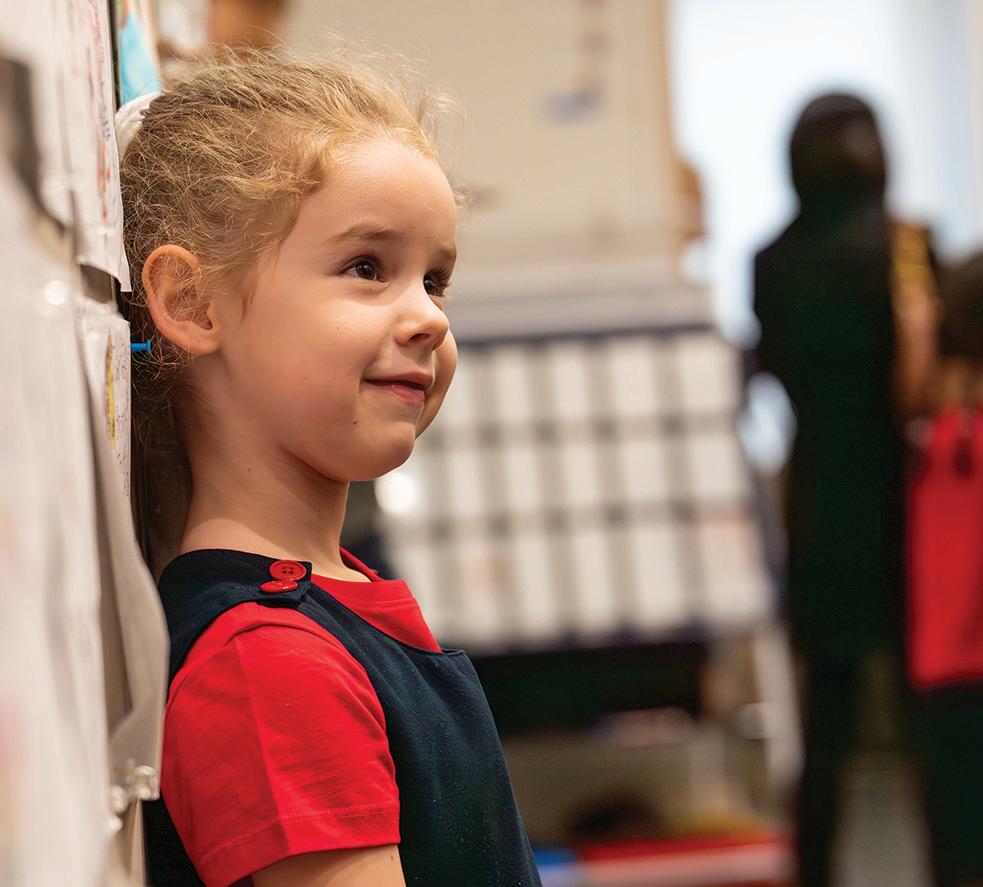

“The diversity of interests and personalities here blows me away. People do everything— art, sports, advanced computer engineering. It’s fantastic. We all have the same goals of being kind, communicating with each other and our teachers, and being driven in our work. I really value those underlying goals within a diverse community.”


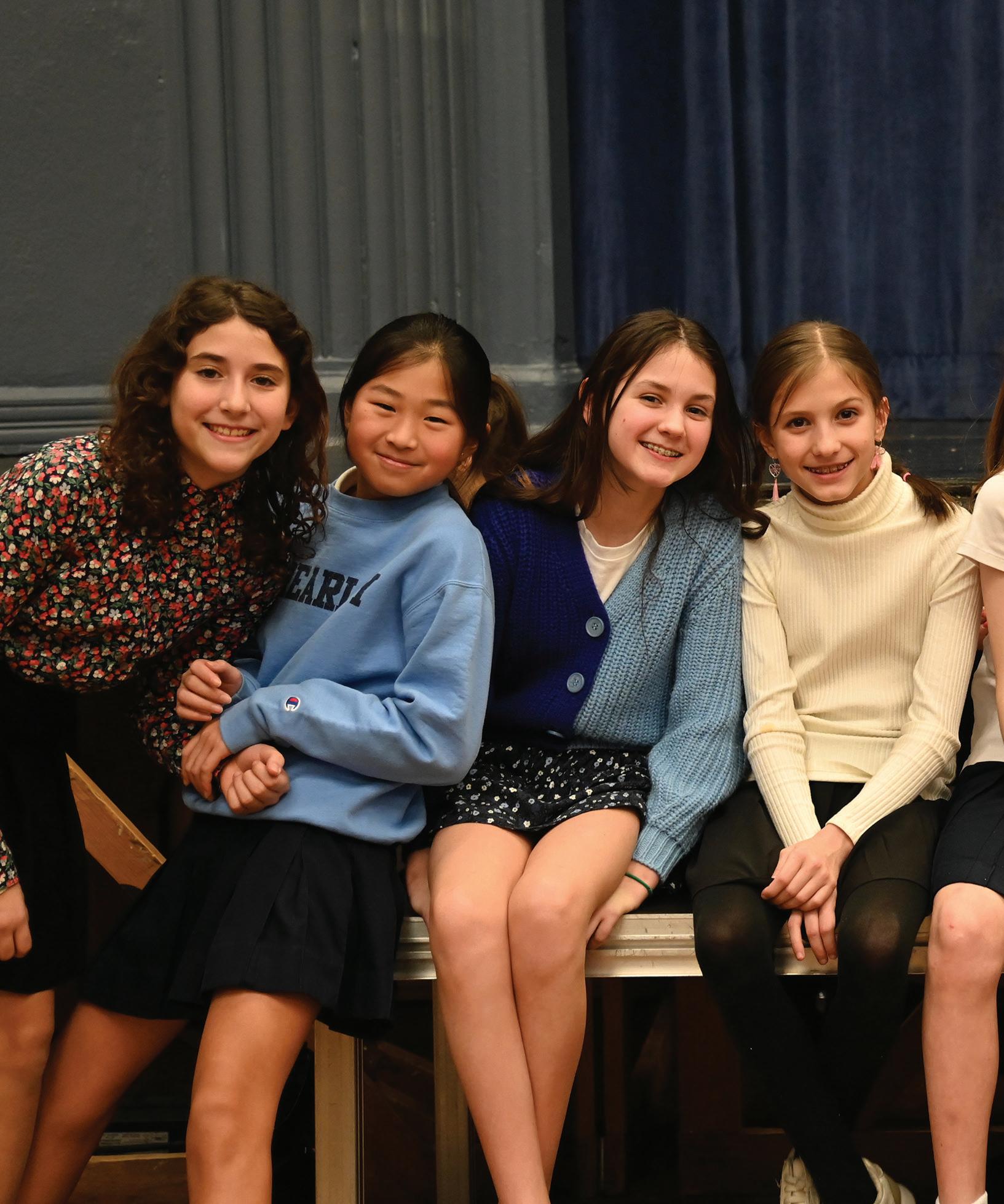
“I love how you can learn many things while still having tons of fun. This is my happy place.”

8:00
Arrive at school, meet with friends
8:15
Homeroom
8:30
Spanish
9:25
Science (Biology)
10:20
Floats and Study Hall
10:40 Community Time
11:25
Lunch and Recess
12:20 Math
12:55 Debate Club
1:20 English
2:15
Photography or orchestra rehearsal
3:10
Pack-up
3:15
Volleyball
4:30
Home
5:30
Homework
6:30
Supper
7:00
Homework
8:00
Pack-up/Read for pleasure
9:00
Bed





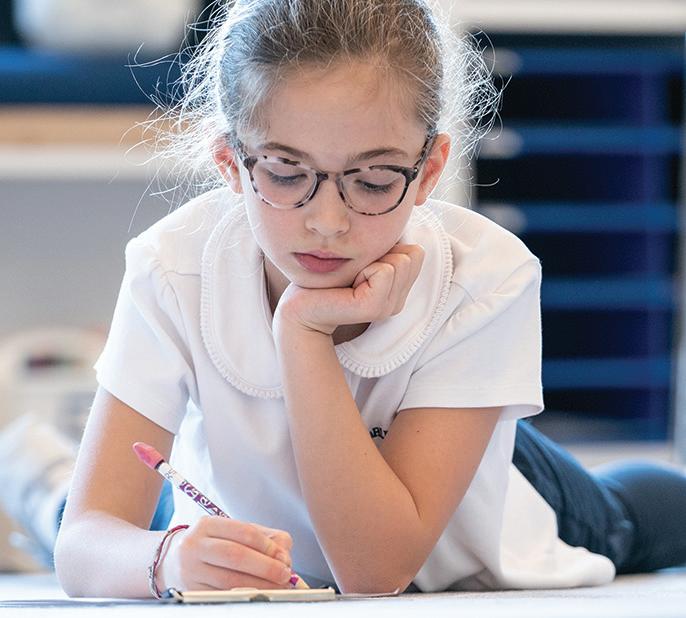
“I came here because I wanted a school where my voice would be heard and where I could have leadership positions. This strong intellectual community is what I love.”
CLASS X STUDENT

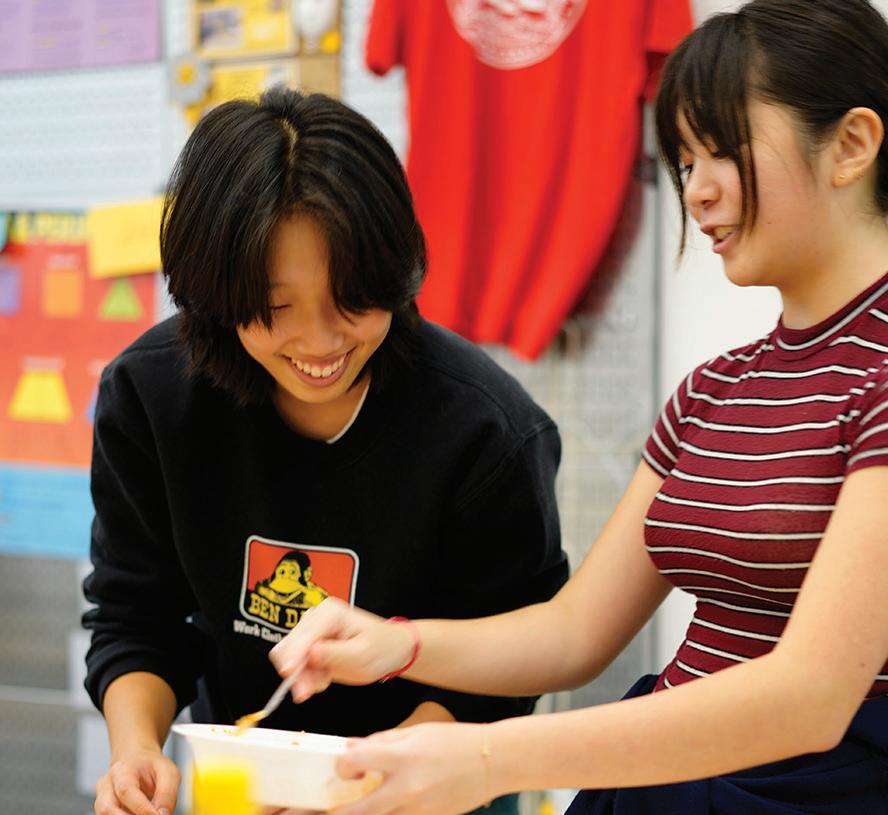
“I am always surprised by my students: how creative they are and how much initiative they take. Everything is possible. Not just anything, but everything.”
Brearley’s mission has long combined the highest academic rigor with insistence on a larger purpose: a “passionate exchange of ideas” at school prepares girls of “adventurous intellect” to put their knowledge and habits of mind and character to meaningful use beyond school.

At the core of the Brearley experience is exceptional teaching and a deep curriculum
Brearley’s carefully planned curriculum engages students and their teachers in an intellectual exploration that makes school exciting. Classrooms, laboratories and studios brim with vigor and purpose as students strive for discoveries and reach for insights that will enhance their understanding of everything from electrical currents and game theory to Mandarin, King Lear and the history of the Muslim world. Here, you are part of a warm and welcoming environment for girls who love to learn. For a full list of course offerings, see our Course of Study.
K–Class IV
In Lower School, students focus on problem-solving skills, the expression of ideas and character development, along with the acquisition and exploration of a language base.
THE CURRICULUM INCLUDES
Language Arts
Mathematics
Social Studies
Science
Work and Play

Respect and Responsibility
Library
Art
Crafts
Music
Physical Education
Service Learning
Mandarin Technology
Composition
Carpentry
Health & Wellness
Classes V–VIII

In Middle School, each girl is encouraged to develop a sense of her strengths as she learns new material and masters new intellectual, social, emotional and physical skills. Recognizing not only the individual needs of each student but also the fact that those needs change from year to year, the program includes a progression of growing responsibility and independence.
THE CURRICULUM INCLUDES
English
Mathematics
History
Science
French
Mandarin
Spanish
Reading and Writing Skills
Drama
Music
Studio Art
Library
Technology
Physical Education
Latin
Writing Workshop
Public Speaking
Health & Wellness
Classes IX–XII
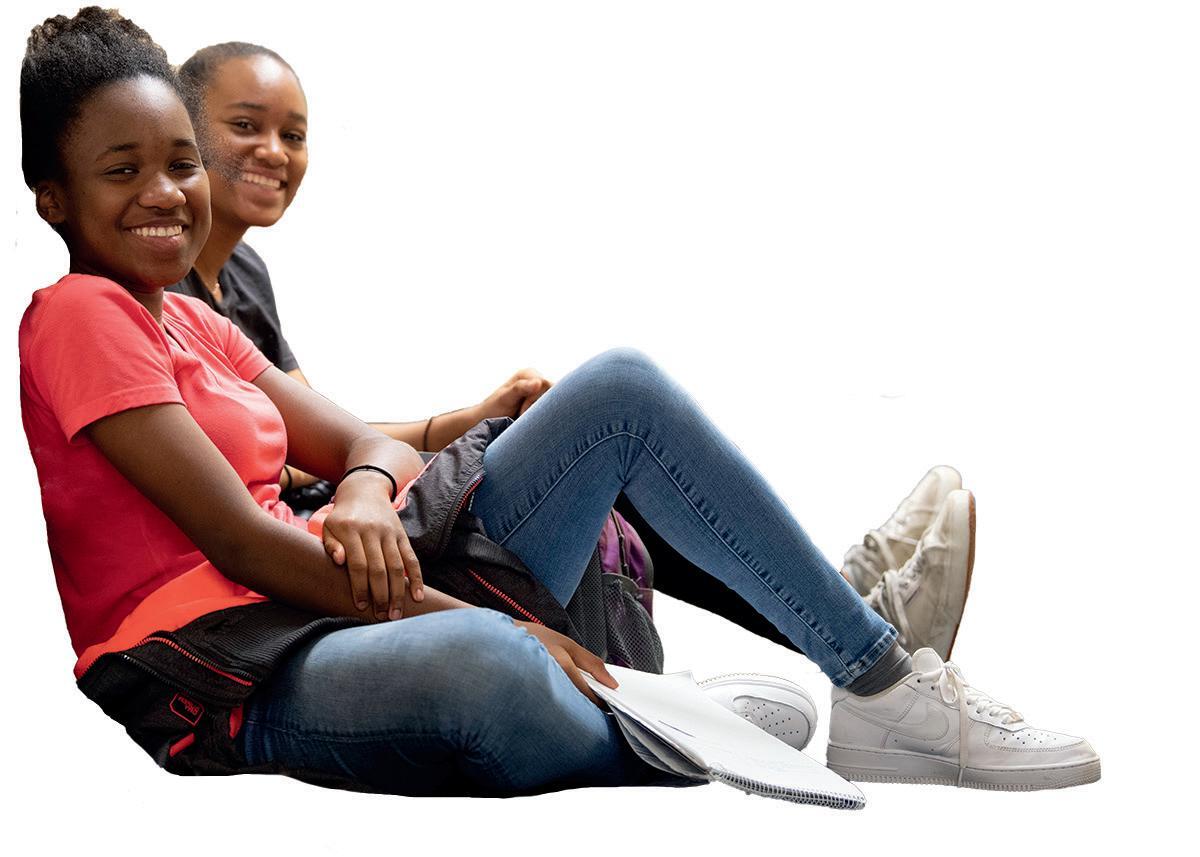
The Upper School represents the final stage in a program that develops a student’s confidence in herself and in her growing skills in many disciplines. Its rich and vigorous academic, athletic and artistic curriculum is centered in a strong community that supports students in their self-discovery and produces resourceful young women who are prepared to find their places at college and in the world outside of Brearley.
English
Baldwin, Bishop, Chaucer, Chekhov, Donne, Faulkner, Fitzgerald, Gogol, Hawthorne, Hurston, James, Lahiri, Larkin, Lowell, Melville, Morrison, Pushkin, Rushdie, Shakespeare, Thoreau, Tolstoy, Turgenev, Twain, Wharton, Woolf
Mathematics
Geometry, Algebra II, Calculus, Advanced Calculus, Linear Algebra, Interschool Math, Interschool Game Theory
History
20th-Century World History, U.S. History, The Atlantic World, China and Japan, Modern European History, History of Warfare, History of World Art, Modern Latin America, Law, Economics and Public Policy,
Science
Biology, Chemistry, Physics, Environmental Sustainability, Computer Science and Programming, Columbia Science Honors Program, Science Research Seminar, Advanced Biology, Advanced Chemistry, Advanced Physics
Modern Languages
French, Mandarin, Spanish
Classics
Latin, Greek
Studio Art
Drawing, Mixed Media on Paper, Oil Painting
Music
Vocal Technique and Literature, Chamber Music / Orchestra, Instrumental Techniques, Music Performance
Drama
Craft, Production, Playwriting
Health & Wellness
OWL (Our Whole Lives)
Physical Education
Junior Seminar
Senior Seminar
Special Upper School programs
• Columbia Science Honors Program
• Brearley Science Research Seminar
• Interschool advanced math courses
• AI/SITE program at New York University’s Tandon School of Engineering
• Health & Wellness
• Semester programs at the Mountain School program of Milton Academy and the Maine Coast program of the Chewonki Foundation
• School Year Abroad in France, Spain, Italy or China
• Summer study with Brearley faculty in India or China
• Independent Senior Spring Project
• Civil Rights trip to Alabama
During Senior Spring, each student pursues her deep curiosity about the world in a unique way. Her project often reveals the breadth and depth of what she knows and her appetite for continued discovery. The internships, research and volunteer projects she designs give her an experience of impacting individuals, organizations and institutions. Collectively, the range of senior projects over the years captures the intellectual vibrancy that runs through the School not just during senior year but in every grade throughout the student body.

ELLEN
“I’ve been working at an NYU neurogenetics lab, researching lysosomal storage. I really wanted to use my Senior Spring to work more on the experimental side of science. I have always loved science in school, but I wanted more experience in the scientific process. I thought the lab’s experiments would be more conclusive and that the process would be much quicker. But now I’ve learned how constructive failure can be. I’ve learned how important it is to wade through the uncertainty that comes with the scientific process.”
GABRIELA
“For my Senior Spring I’m interning at the American Museum of Natural History, learning how to drive a car, learning to swim, and taking mini courses in Greek, Anglo-Saxon literature and philosophy. It’s been super fun. In my internship I’ve been working mostly in the Hall of Ocean Life. It’s been interesting, because I’ve been learning how to teach two different age groups of kids and learning how to interact with large groups of older kids to keep them engaged.”
NORA
“I’m doing this really amazing internship at The American Reader, which is a literary magazine. They have about six interns. The rest of them are in college or out of college, so I am definitely the youngest, which is a little intimidating, but I’m really lucky to be there. Because the program isn’t that well established, it’s meant they let me do more than I might otherwise have gotten to do.”
JULIA
“I decided to do a lot of things for my senior project because I have a lot of different interests. I took a couple of mini courses in ethics and ‘fab lab’—creating things out of math. I’m also teaching first-grade music with Ms. Joaquino, a teacher here. I did an independent study in science. And I’ve been doing more crafting and baking because I’m not a very skillful person when it comes to the visual arts. I have been trying more of those projects and blogging about it—even the failed efforts. Those failures still teach me. I still put them on my blog. Brearley has taught me how to roll with the punches.”
ANNA
“I’m doing four mini courses— Anglo-Saxon Literature, Constitutional Law, Russian Literature, and Modernism as a Philosophical Problem.”

NIA
“I studied abroad last year in China. When I came back I wasn’t really sure how I could translate what I’d learned in terms of culture back to America. I joined a program where I could help people who live in Chinatown learn English. I decided to devote my senior project to learning more about Chinese immigrants. They have these really amazing stories about their lives in China. What better way to document them than to film our conversations and also tell my audience about the things I learned while I was in China?”
SYBIL
“I designed my project around the topic I want to study in college, which is architecture. I created my own independent study, where I would do a lot of urban exploration in New York, going to neighborhoods I don’t usually go to and finding buildings that really interest me. I picked five buildings that I thought were interesting, and I would sit nearby and just observe and draw them. The years at Brearley have helped me do things for myself. With my independent project I don’t have a teacher giving me a schedule or assignments. It’s interesting working things out for myself.”
CAMILA
“I’m doing a photography project based on the photographs of Charles Jones, who is seen as this kind of master of food photography. His photographs are longexposure shots of vegetables and fruit. They are really captivating to me because they are so simple and beautiful. He took them on a very old-style camera in the 1880s. I’ve always loved to cook, so for me it made sense to do a photography project about food. Inspired by his setting and manipulation, I constructed a box in my backyard with a flat overlay on the top that allows me to let in more or less light as well as change the size of the area being shot.”
FUNMI
“My senior project represents what my interests have broadened into these past 13 years. I took an internship at the Manhattan Theatre Club. I evaluate scripts by aspiring playwrights to say whether or not we should produce them. I also discovered that I have a passion for dramatic arts. A huge part of my project was memorizing a monologue from The Two Gentlemen of Verona to perform for an audition for the Shakespearean Young Company summer program.”
KATHARINA
“My project is working for the Academy of Art preserving, hydrating and mounting insects using pins and wax paper into a three-dimensional position so that they look animated and alive. It’s a combination of science and art. I helped give a lecture and tutorial to graduate students on the process. I think Brearley teachers do a really good
job of weaving disciplines together—writing creatively in science or understanding the mathematics of art.”

“Music has been a huge part of my life since I was little. I’ve been going to Juilliard Pre-College since sixth grade, so I knew that when it came time to choose a senior project it would be musicrelated. I participated in Young Arts Week New York, during which I got to work with Mikhail Baryshnikov and a bunch of amazing young artists from around the country. They came from all different types of art forms, so I worked with fine artists, dancers, jazz musicians and cinematographers to create a multidisciplinary show. That approach tied into the interdisciplinary way we learn at Brearley. What we learn in math might also tie into what we’re learning in English or history. I’ve been learning that there is a lot of interaction between math and music that I had never even considered.”
Mapping a single conversation emblematic of so many more
Students learn to think with agility and to speak and write with exceptional fluency, power and precision as they grow here. Each day they gain practice developing the self-assurance to speak up, propose ideas and participate actively. Eavesdropping on this Upper School Political and Social Philosophy elective gives a glimpse of how opinions are formed and ideas are explored on a path to a deeper understanding of material in partnership with teachers.
STUDENT 1
STUDENT 3
He also seems to think that women might have a higher pain threshold.
STUDENT 4
I’ve noticed at my volleyball practices that male coaches tend to be more squeamish around injuries.
STUDENT 4
Plato says that women have no single or fixed nature. The women in Sparta are different than the women in Athens.
STUDENT 2
Well, he suggests that everyone has natural talent—women aren’t excluded from that. No one is inherently better than anyone else.
STUDENT 2
Though he did want to abolish the family at one point. It reminded me of the Owenites in American history.
STUDENT 4
Right, and Plato believes that only truth is good.
STUDENT 1
STUDENT 3
If only truth is good, then what do you do about politics?
Well, most people are blinded by appetites—they can’t want good. Socrates thought that we all wanted to be good.
STUDENT 3
STUDENT 5
It also messes up his opinion of a “good person,” as someone who dedicates himself to finding that little bit of reason.
Maybe for the philosopher, then, reason should be on the bottom.
STUDENT 6
Too idealistic.
STUDENT 2
There’s reason, appetite and emotion. What if they’re not in balance?
STUDENT 1
STUDENT 5
Was Freud inspired by this in his tripartite soul? Ego, superego and id?
STUDENT 1
Probably shouldn’t get involved.
STUDENT 5
Who are the Owenites again?
Well, he’s suggesting that the state is a heuristic. That is, when we are governed by reason, then that’s enough regulation.
STUDENT 3
STUDENT 6
How?
STUDENT 1
Wait, this “three-part soul” is a huge step away from Socrates’ idea that every man wants to be good.
STUDENT 4
What if we inverted the pyramid so reason was on the bottom?
STUDENT 1
They’re balanced in a pyramid, with reason on top and appetite on the bottom. Temperance keeps everything in place.
STUDENT 6
My question is, how can you regulate this kind of thinking?
They were a utopian populist socialist group in the 1830s.
Brearley teachers are as excited as their students to come to school. Highly accomplished in their fields, they are attentive to each student’s aspirations and pace of development— her personality and talents. By asking much, and by serving as role models of commitment and achievement, teachers here inspire their students to stretch beyond their perceived limits and to internalize the connections between good work habits and success. Below, faculty members who specialize in a range of disciplines and teach Brearley girls of all ages talk about why teaching these students at this school is so special.

How is your teaching style or approach different because it happens here?
“My teaching continues to evolve as a result of being in the classroom with our students. To meet a student where she is, plant an idea, watch the idea germinate, then graft another branch, on and on until a mighty learning oak appears, is just what it’s like working with these girls. Their innate curiosity, zest for learning, and feeling of limitless opportunity keep the teaching life new and vibrant, even after almost three decades here.”
MARIA ZIMMERMANN, HEAD OF LOWER SCHOOL
“With these students, the sky’s the limit. There is nothing you cannot try in the classroom because there is nothing these girls are not game to tackle. That means we can remain creative and fresh in our approach even after 25 years.”
LAURIE SEMINARA, SCIENCE DEPARTMENT
“Classroom communities at Brearley function as natural affinity groups of young girls. Teaching in this setting has enabled me to focus on integrating our academic curriculum with social justice issues specifically faced by girls and women in our society. You might call the group of students who arrive to my door everyday a “class,” but we call ourselves a family—we learn, we laugh, we sing, we dance together; we make mistakes, we get on each other's nerves once in awhile, we hug, we heal and we take care of one another all school year long. Being a teacher at Brearley has granted me the privilege of a front row seat to this perennially blooming sisterhood.”
ARIEL SANABRIA, CLASS I ROOM TEACHER
“While I am responsible for my students meeting each lesson’s objectives, it is my students who truly become the teachers. Brearley students are relentless questioners who examine each lesson with a critical eye. They guide the discussion, based on what is important to them. Through this, knowledge is shared and wisdom is gleaned. I love working in a school environment where teachers and students learn together.”
COCO YANG, ASSISTANT HEAD OF THE LOWER SCHOOL“Because our teachers teach across the divisions, they are able to guide the students carefully and support them well through the curriculum. They know very well where the program begins and ends.”
JIM MULKIN, ASSOCIATE HEAD OF SCHOOL FOR ACADEMIC LIFE“I am a better teacher to my Upper School students for knowing how to simplify complex explanations and make appropriate lessons, readings and presentations for Middle School students. I also remember how the Upper School girls thought about questions when they were younger. I know there are little girls inside my Upper School students, and I have a sense of the older student who lurks inside every Middle Schooler I teach.”
GAIL MARCUS, HISTORY DEPARTMENT“Cross-divisional teaching is part of our ‘special sauce.’ As a teacher, you become a prism for your discipline—the filter pulling out the essence for different age groups.”
SHEILA KRAMER, DEAN OF STUDENTS“Brearley’s commitment to cross-divisional teaching helps students and teachers form a tighter educational relationship based on their longer shared experience working together within a discipline. It also gives teachers a tremendously valuable ‘long view’ of the curriculum in their discipline across the entirety of a student’s experience here. For instance, thanks to this system in Studio Art, we think about all the ways students explore quality of line, color mixing and composition in Lower School, then build on that to invent sophisticated printmaking projects in Middle School, and later teach representational oil painting in Upper School.”
LUIGI CICALA, ART AND TECHNOLOGY
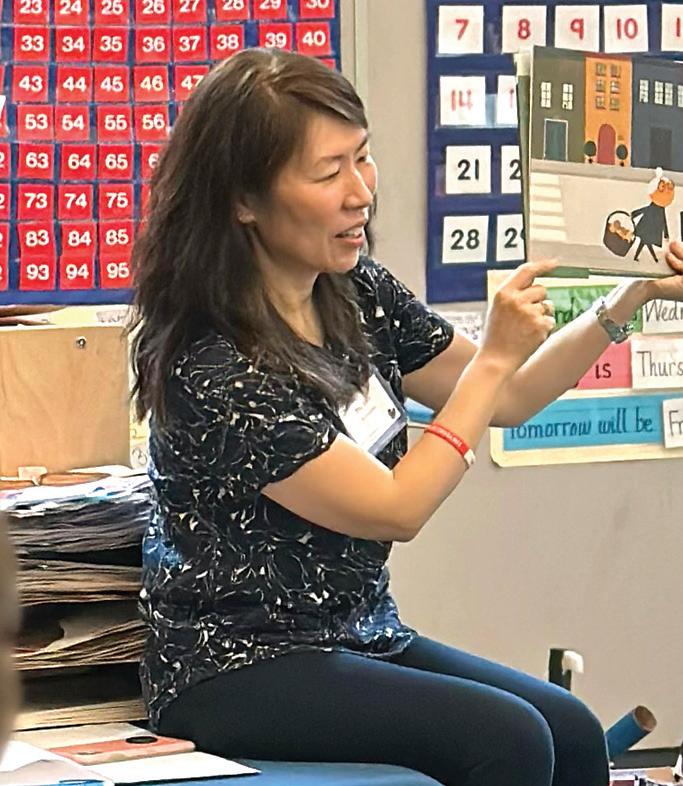
Alumnae and parents talk about the caliber of a Brearley education, saying it really is different. To what do you attribute that difference?
“The idea of intentionality is at the core of a Brearley education—considering how to structure an argument, opinion or the consequence of a chain of thought by avoiding the arbitrary constructs of a powerful toolbox. Our students are expected to strive and hone their attention for intellectual pursuit and they do so.”
LC
“One big reason is the cross-divisional teaching mentioned before. Another is the commitment to quality teachers. My work builds on the successes all my students bring from their work with all of their other teachers. Students expect to have a good class. That fizz of a shared idea, a shared accomplishment, which happens so often in my classes, is harder to generate in a different atmosphere. Alumnae in college come back and tell me, over and over again, that we didn’t warn them: they thought all classes were like the ones they had at Brearley.”
GM
“The best English classes that I have ever taught at Brearley all have this single trait: we are so fully immersed in the language of a text that insights come fast and furious from everyone in the room, accompanied by laughter and a sense of wonder that a human author can encompass so much in words (or is it the other way round, that the language is using the person so powerfully?), and in these classes, I stop being the teacher and become the student of my students, the student of literature.”
JEELEONG KOH, ENGLISH“Small classes and teaching loads are part of it too. I have time to be a professional historian, keeping up with the latest developments in history, so Brearley students’ education in history is up to date. I have time to concentrate on and get to know my students every semester. Another factor is that each department, working collaboratively, creates its own curriculum. We hire people who not only love their disciplines and their students, but who have a level of quality that isn’t fully definable but is visible in the school. We can focus on the best for our students in an atmosphere of professional respect, in which teachers and administrators are a team, so the environment allows for the generation of new ideas and for continuing self-evaluation and improvement.”
GM
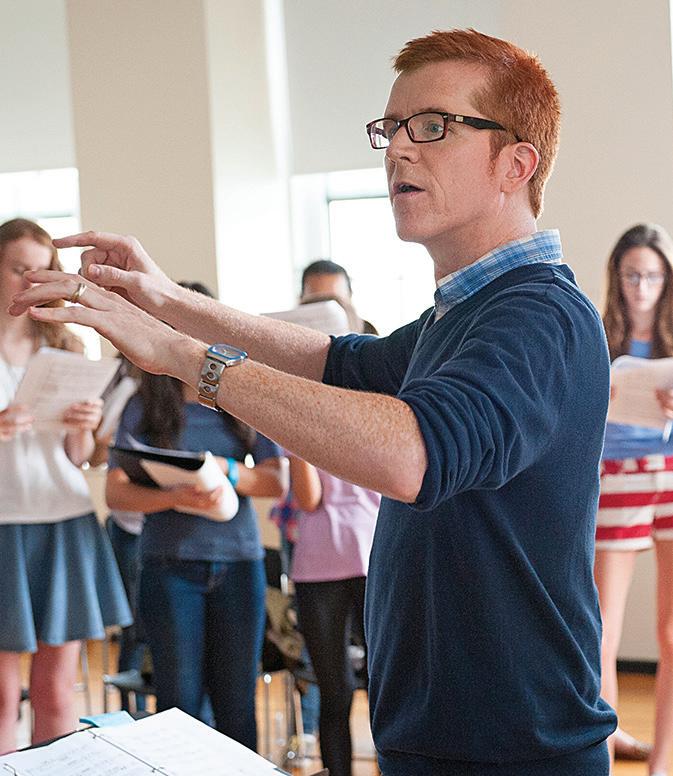
When you think about your students, what are some favorite ah-ha moments that you have witnessed?
“‘I see it!’ announced one Class I student after decoding her first two-syllable word. She was so excited about having ‘cracked the code.’”
“In Chemistry we were discussing the invention of Kevlar when a student said, ‘Wow, everything literally is Chemistry!’ When discussing carbon monoxide poisoning and the importance of detectors, a student said, ‘Every day we learn something that is critical for all people to know … How is it that I never knew this?’”
LS
If you could tell a prospective student only one thing about Brearley, what would it be?
“If you find adventure in learning, you should come to Brearley.”
GM
“It’s possible that the deepest learning experience of your life will be here.”
“Students expect to have a good class. That fizz of a shared idea, a shared accomplishment, which happens so often in my classes, is harder to generate in a different atmosphere.”


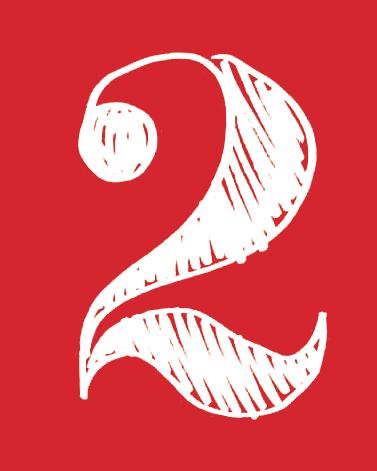

No one will grade your notes—they’re just for you! Write down whatever you need to remember, in whatever form helps you remember best. If that means drawing pictures, draw away! My favorite part about taking notes is going back to them, and being transported right to the very moment—the conversation and the interplay of ideas I was having when I was writing them.
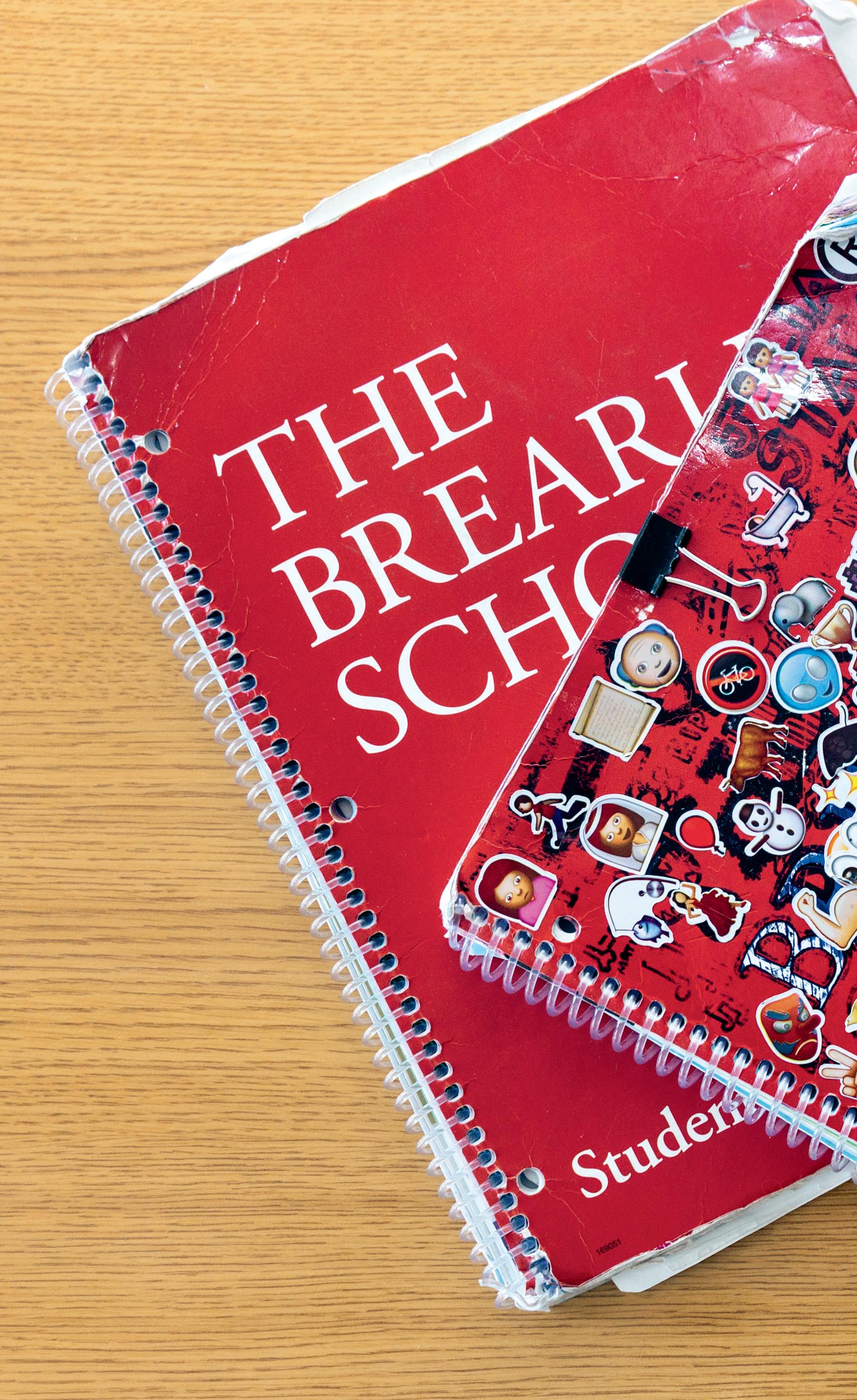



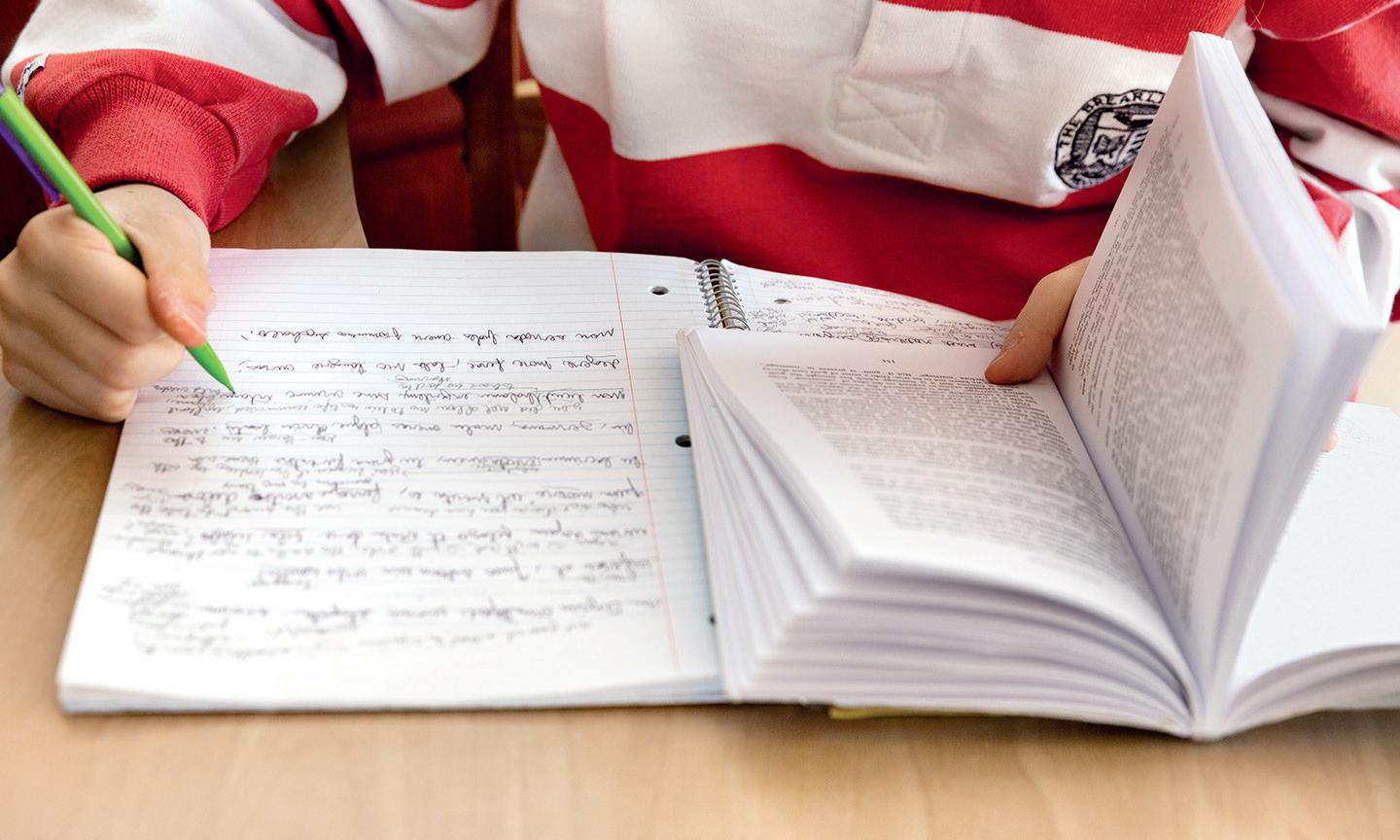


You might notice the decibel level at Brearley can rise pretty high. The energy is contagious with animated conversation. A student says this comes from knowing one another so well and being excited to share and be with your friends. When those friends are described as big-hearted, ambitious, funny, motivated, quirky, unique, vocal, eloquent, original, brave and gregarious, it’s no wonder exuberance spills out of classrooms and into corridors and common spaces.


Drama at Brearley has always been a serious undertaking. As an alumna has written, the journey down those two flights of stairs to the B Deck theater “is a journey to the heart of the school.” In any given year there is a steady offering of Shakespeare, ancient Greek drama, Gilbert and Sullivan, American musical theater and classic plays from Sheridan to Shaw. Modern playwrights represented on the Brearley stage include Henley, Hellman, Kushner, Stoppard, Miller, Ensler, Williams and Wasserstein. Theater is woven into the School’s traditions, from seasonal presentations to the annual class productions that are integral to the Brearley experience. After-school productions give a broader taste of what playmaking is. Student crews design, build and paint scenery and work with faculty and visiting artists. In the Upper School Tech Club, run by students working with a faculty advisor, girls who want to learn technical theater are mentored by more experienced students and may later become mentors themselves. Boys from other schools are also invited to audition for major productions.
Ambitious, intense, extraordinary

Brearley has a long history of fostering the development of musical skills, and our program provides students with a wide range of opportunities to demonstrate their expanding musical engagement. Starting in Kindergarten and continuing through Class VIII, music is taught twice a week. From Classes III through VIII, girls are also taught to play a variety of instruments and private lessons are available by separate arrangement for students in Classes II through XII. One third of the students in Classes K through XII are enthusiastically involved in extracurricular musicmaking. Girls eagerly join the Middle School Singers, Middle School Orchestra, Middle School Jazz Band, Recorder Ensemble, Middle School Bells, Upper School Chorus, Upper School Jazz Band, Upper School Orchestra, and the B-Naturals, our auditioned a cappella group. All perform several times throughout the year, both at School and elsewhere in the city. Brearley musicians stage shows and concerts for other schools, neighborhood civic groups, as well as at professional venues including Lincoln Center and Carnegie Hall.
RECENTLY PERFORMED

A faculty of artists carefully develop a curriculum that combines the diversity of art history, the tactile practice of “making” and the usefulness of revision. Early in the Lower School, the education of eye-to-hand coordination begins the process. Girls learn the basic elements of picture building through emphasis of line, color, texture, composition and observation. Ceramics, photography, woodworking and digital media further expand our students’ facility and appetite for balancing new skills with their vivid ideas. The Art Department emphasizes the excitement of making a singular work of art by cultivating patience, confidence and the independent thinking necessary to shape a robust imagination.
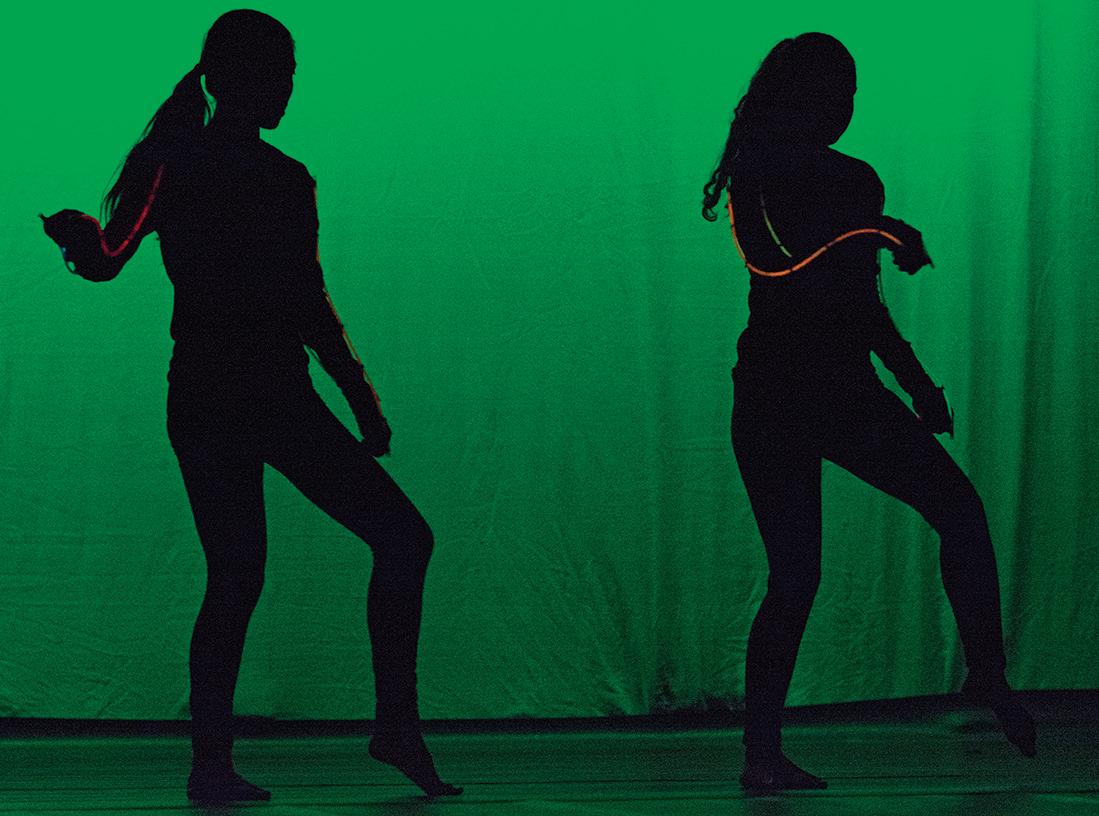
The dance studio on the fourth floor at Brearley is always full of movement—leaping, stretching, bending and skipping. Our youngest students are encouraged in their creativity and self-expression at the same time as they learn to appreciate various dance styles. In Middle School, the curriculum emphasizes styles including formal modern dance technique and composition, hip hop and African dance. Students may participate in the Middle School Dance Ensemble, which has a major performance each fall. In Upper School, students participating in Varsity Dance work on all aspects of producing a yearly show, with choreography by faculty, guest artists and students. Elective dance classes are also offered to Classes IX through XII, including modern dance, jazz and choreography.
CHOREOGRAPHERS AND STYLES STUDIED BY STUDENTS
One of New York’s most extensive independent school athletic programs




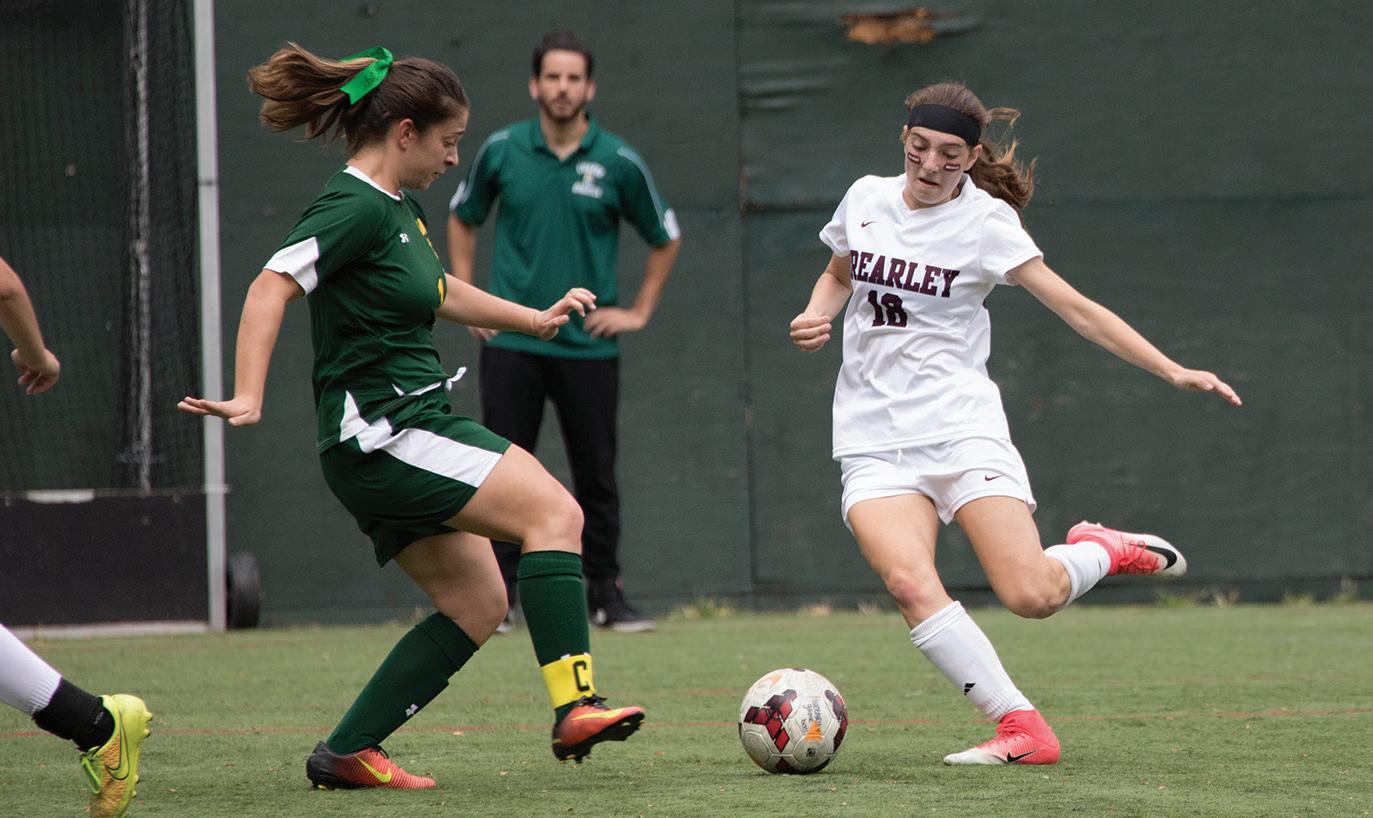
With fourteen varsity sports, dedicated coaching and a strong reputation, Brearley athletics is one of the city’s leading independent school programs. In recent years, our teams have brought home league championships in track, softball and lacrosse, as well as New York State championships in cross country and volleyball.
Our Friday Sports Program offers students in Classes K–IV gymnastics tailored to their age group. Competitive athletics begin in Class V, with seven club sports during the year for students in Classes V–VI. Participation in the program gives many girls their first chance to be part of a team, where valuable lessons in cooperation and skill development are learned.
In Middle School, Brearley’s no-cut policy enables girls to explore their athletic interests, knowing they are guaranteed a spot on the team of their choice regardless of prior experience or ability. The Middle School interscholastic program features nine sports as well as a junior dance troupe over three seasons. In Upper School, our primary goal is to provide opportunities for as many students to participate in Varsity Sports. Brearley’s program offers at least one team per season that is a no-cut team, welcoming all students.

upper school sports
Badminton
Basketball
Cross Country
Dance
Fencing*
Field Hockey
Lacrosse
Soccer
Softball
Squash
Swimming
Tennis
Track and Field
Volleyball**
middle school sports
Basketball
Cross Country
Dance
Lacrosse
Soccer
Softball
Swimming
Track
Volleyball
* Interschool
** Junior varsity
“Brearley helped me develop my love for athletics.
My coaches encouraged me to try out for lacrosse last spring even though I had never played before. Now I play starting attack and lacrosse is my favorite sport.”
CLASS X STUDENT
We believe each student realizes her greatest potential when she challenges and understands herself fully as a person and as an active participant in a larger place and purpose. We believe leadership and service go hand in hand. With each year at Brearley, students take on increased responsibility for themselves and others.
From service project coordinator to class president to newspaper editor to theater lighting technician, girls play every role here. They become accustomed to stepping up to the challenges and opportunities before them. They develop a talent for inventing new ways to impact their community in school and beyond. We believe girls’ capacity for leadership is both equal and special. When a girl’s confidence is rooted in her intellectual abilities and in a set of values and life skills learned inside and outside of the classroom, she will dare to test the unfamiliar as she pursues a life of meaning and purpose.
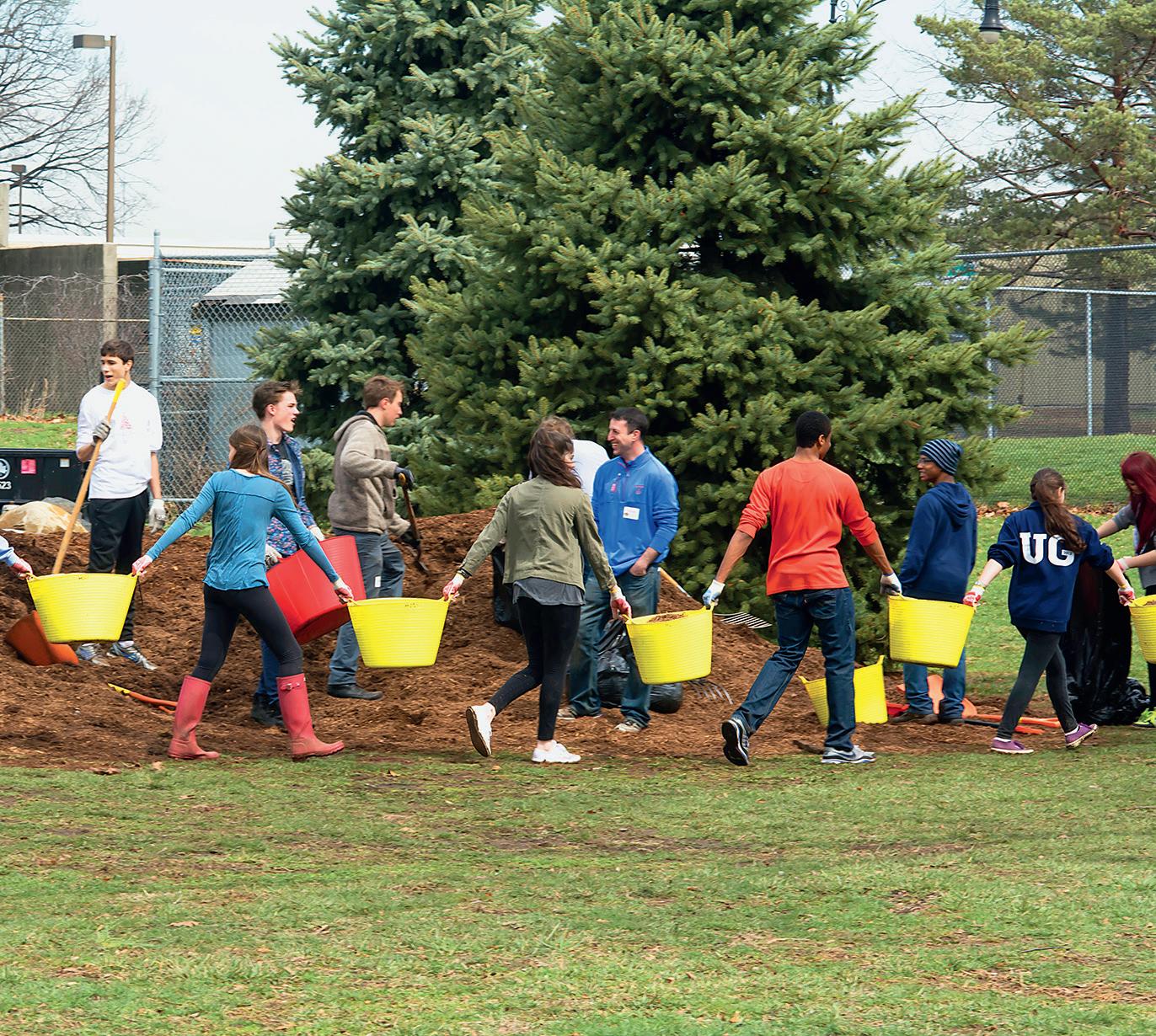
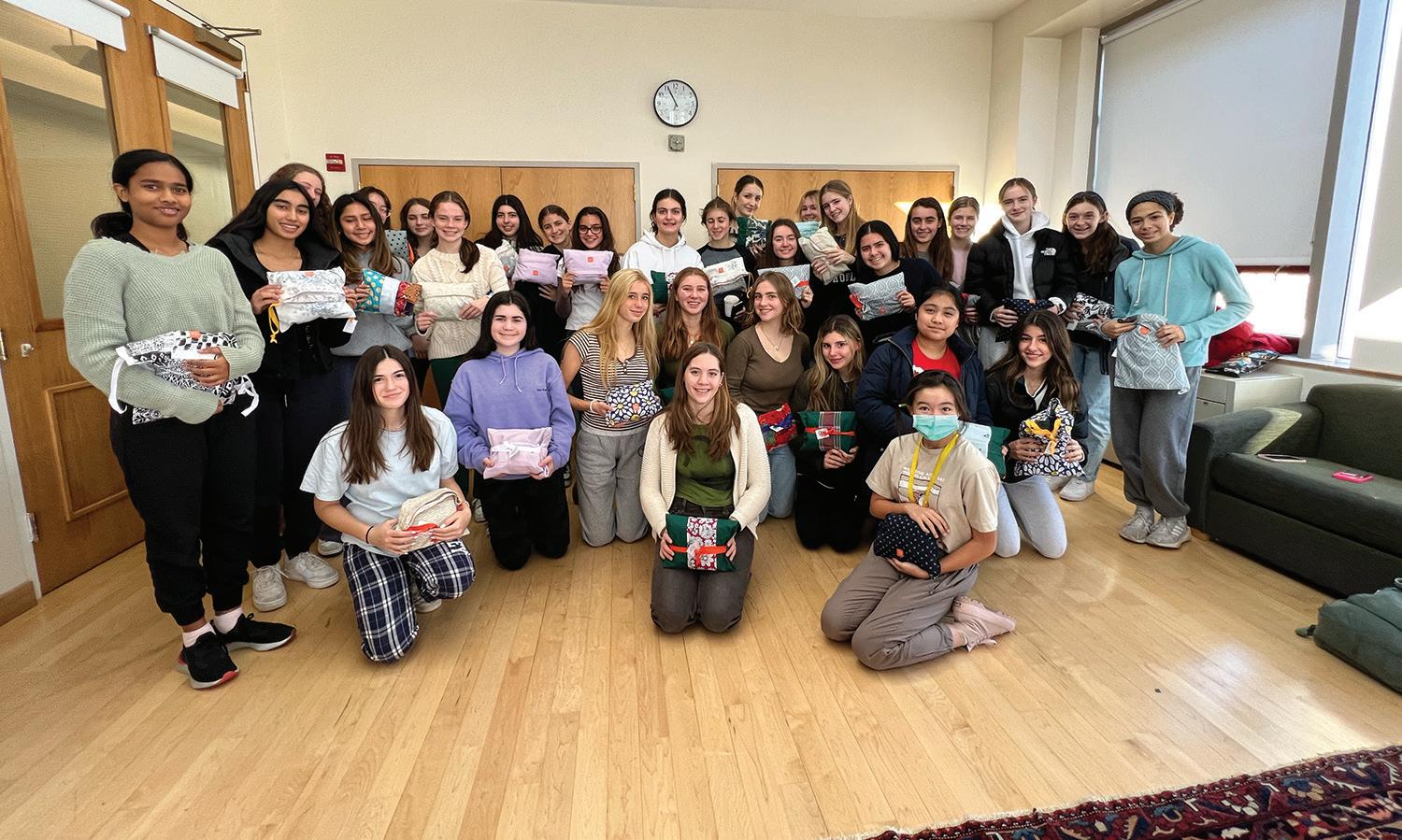
Brearley’s Self-Government— as opposed to the more common “student government”—is unique. As the preamble to the organization’s first charter states, “The aim of SelfGovernment is to develop in each individual a sense of responsibility by providing an organization through which students can govern themselves.” SelfGovernment at Brearley has sustained and reinvented itself for over 80 years—and continues to be experienced by students here as a vital demonstration of their confident role in their own education.
“My good friend and I are running against each other in the upcoming Self-Government elections. Obviously, one of us is going to win and one of us isn’t, but it’s not going to affect our friendship. That’s really important. It’s something I love about this school. We don’t put each other down. We motivate each other.” CLASS XI
From their first years at Brearley, girls experience the satisfaction that comes from helping others. The unity, mutual trust and cooperation that begin on the Lower School playground flow naturally into every aspect of education here. With that foundation, and inspired by the models of community service they see demonstrated by older students throughout the school, girls extend their hearts and minds to serving the wider world around them, see the impact of their collective efforts and realize their power to effect positive change. Formal communityservice programs and requirements for service in school and beyond exist in each division. Students often design service projects for their “Senior Spring.” Over time, exposure to advocacy, activism and philanthropy, in addition to traditional volunteerism, impacts each Brearley girl’s notion of being a contributor to the world.
Upper School students serve as editors, writers, artists, photographers and business managers for the School’s three student-run official publications.

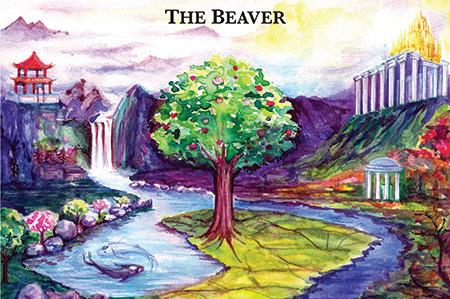



SAMPLE OF CURRENT UPPER SCHOOL CLUBS AND ORGANIZATIONS
ANIME: Enhances understanding and appreciation of anime
ART: Hosts gallery and special exhibits trips and visits to artists’ studios
ASIAN AWARENESS: Open to students of any ethnicity: the only requirement is enthusiasm
BEAC (BREARLEY ENVIRONMENTAL ACTION COMMITTEE): Provides action opportunities and education on environmental issues in and outside of school
BUSINESS AND FINANCIAL AWARENESS: Explores topics related to finance, economics and entrepreneurship
CLASSICS: Encourages students to continue their interest in ancient Rome and Greece
CREATIVE WRITING: Offers opportunity to present writing and receive feedback from classmates and a faculty advisor
DEBATE: Participants learn to compete in Lincoln-Douglas debate and Original Oratory
FILM: Offers seminars, screenings and discussion of current and classic films
LUNA: Open to all students; discussions focused primarily on the experience of Latina students in the Brearley community.
Q&A: Open group discussion focusing on local and global issues pertaining to the LGBT community
GLOBAL GIRLS: Promotes global gender equality
POLITICAL AWARENESS COMMITTEE: Provides action opportunities and education on pressing issues in and outside of school
SERVICE COMMITTEE: Provides service opportunities within Brearley and its surrounding communities
UMOJA: Open to all students; discussions focus primarily on the sisterhood of the African American and Caribbean American students in the Brearley community
SAMPLE OF MIDDLE SCHOOL AFTERSCHOOL ACTIVITIES
3D Design and Printing
The Blue Skirt (Middle School newspaper)
Brearley Video Club (filmmaking)
Brearley News Channel (film, edit and produce weekly newscast)
Carpentry
Ceramics
Debate
Hacklab
Photography
Poetry Circle
Robotics
Theatre
VIII Drama
(1) Don’t be afraid to be confident, spunky and a little weird. (2) Ask questions whenever you don’t understand something. (3) Volunteer your answer, thought or idea. (4) Listen to teachers as well as peers. (5) Follow the core values: courage, responsibility, respect, kindness, honesty. (6) Do your homework first.
An illustrated, un-definitive glossary of terms and customs
Like many schools we have our Spring Fling, Winter Carnival and Homecoming, but we also have plenty of little traditions complete with a lexicon all our own.
RIVER LINGOBrearley’s location on the East River has led to the school’s many boating references. The Lower School play area is the “Pier,” some of the building’s floors are referred to as “decks” and extra help sessions with teachers are called “floats.” Is that because they keep students afloat or because they sometimes take place outside of class, as teachers and students “float” together in hallways or the library? No one can say for sure.

Conversations are as tasty as the food. The Caf incorporates organic and locally produced foods in a menu designed to appeal to diverse tastes and diets. While serving daily deliciousness, the Caf also educates young palates and minds, advancing food awareness and developing a respect for food and its role in the environment.
Each class in the Middle and Upper School has its own mascot. At the annual Mascot Assembly in May, a tradition that dates back to at least 1923, the Senior Class passes its mascot to the students in Class IV, and both classes sing about their mascot.
Balthazaar the Camel Fridgie the Penguin Tigger the Tiger
Socrates the Owl
Amelia the Duck
Olaffub the Buffalo Jimbo the Elephant Theodore the Bear


Lower School girls wear the enduring Brearley tunic, with four red buttons, two pockets and side pleats, or uniform navy pants or long shorts.
Middle School girls have options: the navy A-line skirt or navy pants.
Upper School: No uniform required.
“When I finally graduated to Upper School, I folded away my uniform for good in a box, as you might do with a wedding dress; somehow I knew even then, with its rips and paint stains and filthy White Team belt, it would become both a palimpsest of my youth and a touchstone for a way of living life (rigorously, idealistically, athletically) that I hope I’ll never lose.”
Friendship, camaraderie and mentoring between grades and school divisions makes Brearley a close community. Opportunities such as the Doughnut Assembly give Lower School students a chance to get together with the Upper School, creating a circle from youngest to oldest minus the middle. And, yes, doughnuts are served.
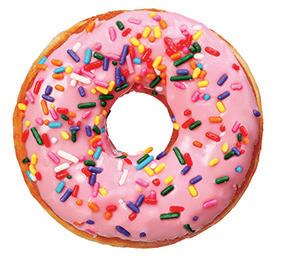
Floats are very much a part of the Brearley academic culture. Students and teachers welcome these one-on-one sessions, which can be requested by students or initiated by teachers.
During the Upper School’s weekly meeting, random acts of kindness by students are recognized with a flower. Students, teachers and staff nominate recipients throughout the week.
In a newer school tradition, all students K–XII are divided into houses (Harry Potter -style) named after former Heads of School. Each House is made up of students from all 13 grades, and they gather during the school year to work on service learning projects.

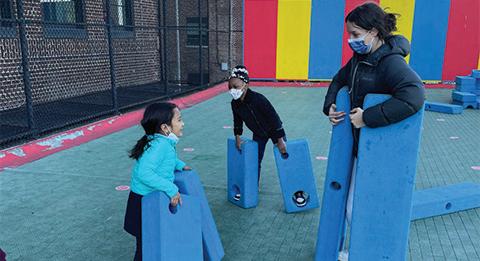
RED AND WHITE TEAMS


Every fall, Classes V through XII venture to Bear Mountain State Park for a picnic lunch, noncompetitive activities and games designed to give students throughout the Middle and Upper Schools a chance to have fun together in a splendid outdoor setting. Many faculty and staff members come along and participate in activities with students, such as hiking up the mountain, walking around the lake and playing facultystudent volleyball.
As we said, Brearley can be a boisterous place, so silence is golden in the elevators that ferry students of all ages as well as teachers, staff, parents and visitors up and down the school building.
STUDENT PUBLICATIONS
The Zephyr
The Yearbook
The Beaver
The Blue Skirt

The Red and White Teams have been a Brearley tradition since 1923. In Classes V to XII, girls join one team or the other for Field Day competitions. Once assigned a color, that affiliation is kept for life. Middle and Upper School Field Day is

another of Brearley’s eagerly anticipated traditions. It is a day of community spirit and friendly Red and White Team competition, and is one of the few events when the entire Middle and Upper Schools come together for a full day.
BEV
The beaver owes its role as Brearley mascot to its inclusion on the school seal. While many schools have the beaver as a mascot, few have carried on this tradition as proudly as The Brearley School. A life-size “Beverly Beaver” cheers on Brearley teams at varsity games and Homecoming, and whimsical line drawings of beavers have been featured in many Brearley publications since the 1930s.

The Brearley seal was designed in 1890 and is thought to have appeared in print for the first time on the cover of the school catalogue for 1890–1891. The seal incorporates images of the lamp of truth, the book of knowledge and three beavers. Some believe the beavers have the same heraldic origin as those on the seal of the City of New York, possibly to mark the importance of the beaver fur trade to the economy of early Manhattan.
“By Truth and Toil”

Rather than textbooks, Brearley history classes use primary sources curated and annotated by the Brearley history faculty.
As one student said, “The first thing they tell you in Kindergarten is that you can do anything and be anything. This culminates in Senior Spring.” During the Senior Spring semester, each girl has the time and resources to pursue exactly what interests her and to make the most of this freedom (see page 22).
4 VIEWS FROM HERE

“Brearley is my home away from home. It’s a place where I can always be myself and never doubt that my teachers and classmates will be rooting for me.”
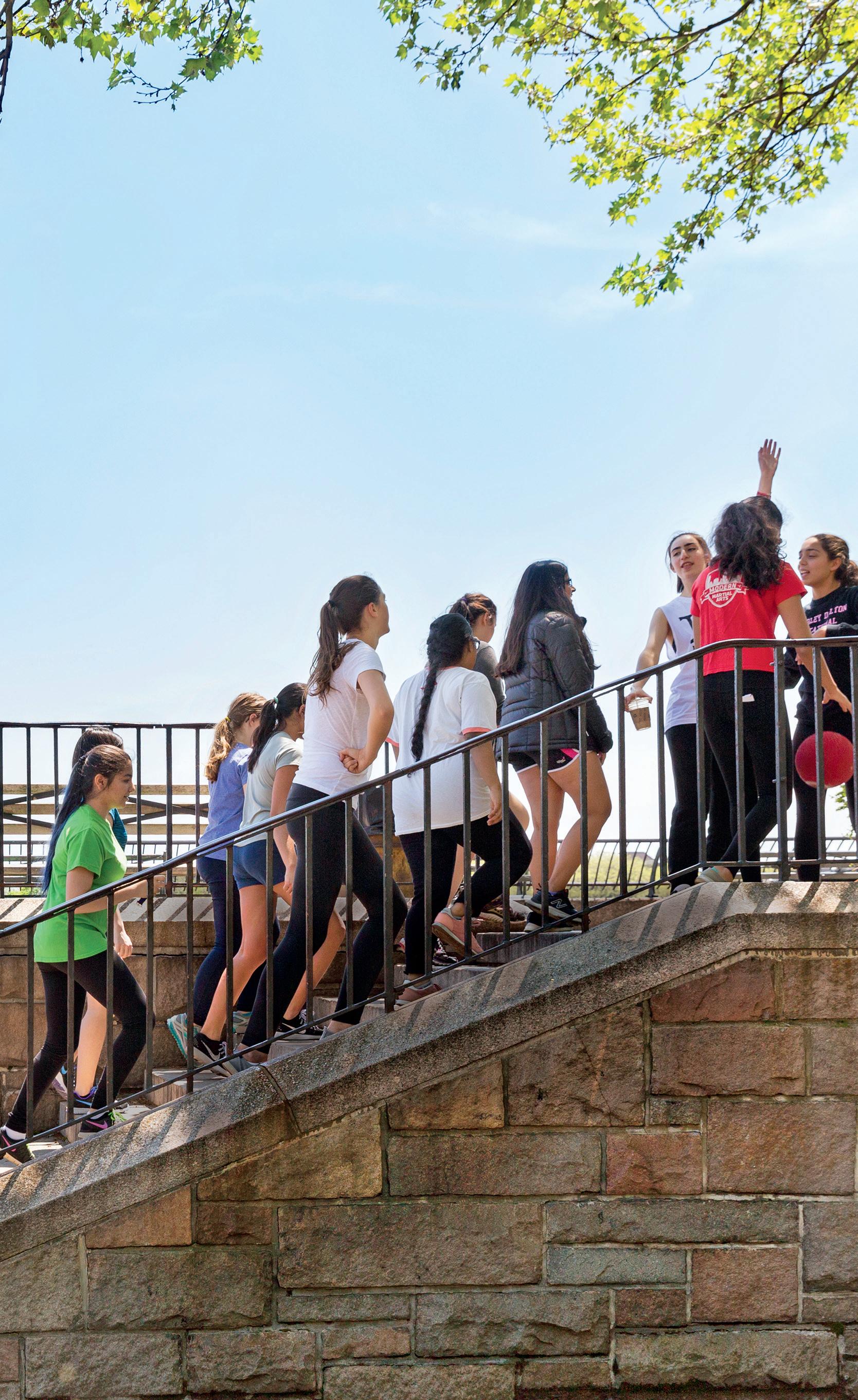
In the late 19th century, Brearley was a radical idea—a school that aspired to change society’s perceptions of girls and women. Establishing itself as an intellectual center offering an extraordinary academic program to girls from across New York City, in a relatively short period of time Brearley demonstrated that girls could equal, if not surpass, boys in the classroom. Well-prepared alumnae soon became pioneers in fields long dominated by men. Today, we remain a school, yes, but for many we have also become an ideal about achievement unconstrained by gender. A singular place that is all about its students—who they are, what they are capable of and what they can become.
 By Jane Foley Fried Brearley Head of School
By Jane Foley Fried Brearley Head of School
Ask any Brearley teacher and she or he will tell you that the best part of being at this school is the opportunity to work with the students here. Their earnestness, integrity, love of learning, compassion and diverse backgrounds inspire us. But all of that is about how we see our students and may not resonate 100 percent with how they see themselves.
Research that I was involved with prior to coming to Brearley suggests that girls’ choices about courses or leadership positions are related to their self-perception as much or more than their grades and test scores or other external assessments. In other words, their aspirations are not based, as one might imagine, on the potential or talent others see in them, but rather on the qualities they identify in themselves.
Over the past two years, students here have sponsored works that focus on perfectionism in girls.
For her senior project, one student created an interpretive portrait series of her classmates, which explored their perspectives on perfectionism, entitled “Flawless: The Importance of Being Imperfect.” Her goal was to debunk the myth of perfection by sharing the stories of her classmates, who each came to realize that perfection is unattainable and that its pursuit left them feeling empty—until they embraced who they were and the many contributions they made to their school, friends and family.
Perfectionistic tendencies can interfere with our achieving our goals. Perfectionism can make us preoccupied with a fear of failure, whereas healthy striving keeps our efforts and achievements in perspective.
I knew this was an issue for me in 8th grade. Throughout my childhood, I had raced against my neighborhood pal, who was always one step ahead of me. In our last year of middle school, a few boys and girls were invited to compete in a high school field day. Sure enough, my friend and I advanced to the finals of the 9th grade 100-yard dash. With about 3,000 students in the high school, I remember this being a very big deal for both of us.
Once the starter gun went off and I hit my stride, I looked to my right and saw that my friend, who had started the race with me, wasn’t there. I then did something that, to this day, I still can’t believe: I stopped. In front of hundreds of spectators and all those high school students, I slowed to a walk. I don’t remember making a decision to stop racing— it was an involuntary reflex. She wasn’t a step ahead of me, as I was conditioned to expect, and in response I stopped running. Unbelievable! Everyone thought I stopped because I was concerned that my friend, who had pulled out of the race with a strained muscle, was injured. Being embarrassed about the incident, I didn’t disabuse them of their notion. But it wasn’t true. I stopped because I was so focused on her being ahead of me that I could not fathom winning. Her speed wasn’t my biggest competition: I was my biggest competition. Later on, my friend admitted that she may have pulled out of the race because she feared I was going to beat her. What a pair we were! Although the perfectionist psychology is rarely in as bold relief as it was on that day, it is a challenge many of us will face at some point in our lives.
I believe that in moments when we shift from healthy striving to perfectionism, a gap opens between who we are and how we behave. We separate from our true self.
One of our students said the advice she would give her younger self would be: “Success— or what I perceive to be success—isn’t more important than happiness, and happiness doesn’t come only from success.”
But what if we could develop a model in which happiness and success are compatible? What if you could define your own individual notions of success and happiness, and had the support you needed to strive in healthy ways? At Brearley, students and teachers are exploring these questions and their answers. Together, we are working to encourage levels of joy and fearlessness that match our extraordinary academic program—strategies and skills our students and graduates will carry with them far beyond Brearley. It is a model we hope helps girls here and elsewhere. In today’s world, it is a model every bit as radical and revolutionary as our founding mission.
What they didn’t know before their daughters came to Brearley
Even for alumnae, the Brearley of today can yield surprises. Here, parents of current students in each division share what they wish they had known when they were considering Brearley. Regard these voices as part of our community of “local experts.”
“The arts are so impressive. When you walk around you see art in all its different facets. Students can really go in any direction they want to pursue in music, theater and visual art.”
“SCHOOL SPIRIT IS REALLY IMPORTANT TO ME. BEFORE MY DAUGHTER CAME HERE, I DIDN’T KNOW HOW GREAT THE SPORTS AND SPIRIT ARE AT BREARLEY.”
“The energy here is just different. It’s such a vibrant place. It’s not an overly ‘girly’ place, which is interesting. There’s a certain straightforwardness about the kids who are here.”
“I like that my daughter is really interested in what she’s learning. For her, it’s not about ‘Did I get an A-minus or a B-plus?’ It’s about being drawn in by the course content.”
“Joy and rigor are not mutually exclusive at Brearley. People are really happy to be here. My kid would live here if she could.”
“It may sound counterintuitive to say, given its academic reputation, but one thing I really like about Brearley is that it is more relaxed than other schools my children have attended.”
“The girls are so open and excited and interesting. Parents I talk to want to know if there’s a lot of homework as the girls get older. Yes, there is homework, but it’s manageable.”
“ONE OF THE THINGS I DIDN’T KNOW IS HOW STRONG THE MUSIC PROGRAM IS. IT HAS BECOME A HUGE PART OF MY DAUGHTER’S LIFE IN FIFTH GRADE, WITH INSTRUMENTALS AND ORCHESTRA AND SINGERS. IT HAS INFUSED EVERYTHING SHE DOES AND HAS MADE HER EXPERIENCE VIBRANT AND REALLY HAPPY.”
“I honestly think that a Brearley girl can be anyone. Our differences are what make our community special.”
As we have done from our founding, we are always working to ensure the highest-quality education for girls. Society often gives young women a choice between smart and happy, driven and generous, kindness and having an edge. We want our students to know such choices are false. Now more than ever, thriving requires both.
Our students and alumnae prove again and again that there is no one kind of Brearley girl. In this very New York school, the breadth of interests, backgrounds, talents and aspirations among our students is as varied and vibrant as the city itself.
The beauty of a Brearley education is that every girl has the full force of this singular school’s mission, program, mentors and peers behind her. Every girl has unfettered opportunity to grow into her extraordinary self, defining what it means to be a Brearley girl.



Brearley welcomes inquiries from students and their families who are interested in learning about admission to the School. Admission is based on a student’s academic promise and achievement, personal qualities and interests. The School is committed to creating and maintaining a diverse student body. The application deadline is December 15. Applications received after the deadline will be considered as space permits. Please note that Kindergarten students must be five years old by September 1 of the year they enter.
Tours of the School are given individually and are scheduled after an application has been submitted. For more details about the application process please visit WWW.BREARLEY.ORG.
The Brearley School is committed to helping families bridge the gap between the cost of tuition and their available resources. Financial assistance is available for students at all age levels and is based solely on need. Each family’s circumstances are taken into account when determining eligibility.
Detailed information about financial assistance, the academic program, faculty, offerings in the arts and athletics and many other topics can be found on our website: WWW.BREARLEY.ORG.
WINIFRED M. MABLEY Director of Lower School Admission
CHRISTINA E. CLEMENTE
Director of Middle & Upper School Admission and Financial Assistance
The Brearley School
610 East 83rd Street New York, NY 10028
The Brearley School
590 East 83rd Street New York, NY 10028
The Brearley Field House
353 East 87th Street New York, NY 10128
T 212.570.8600 admission@brearley.org
The Brearley School challenges girls of adventurous intellect and diverse backgrounds to think critically and creatively, and to act with courage and integrity.
The School fosters a love of learning, excellence in the liberal arts, and engagement in a lively and inclusive community. Guided by dedicated faculty and staff, students learn to uplift one another as they grapple with complex ideas and develop a strong sense of self. We value empathy, originality, and depth of thought and character.
The Brearley community cultivates the joy of lasting friendships, the confidence to pursue one’s ambitions and a commitment to the greater good.
The Brearley School believes that diversity of thought, practice and identity are essential elements in preparing students for principled engagement in the world. We believe in the importance of establishing and strengthening the structures and practices necessary to achieve equitable representation and participation in our School. We are committed to putting these beliefs into action and are therefore engaged in continuous study, self-reflection and dialogue in order to improve and adapt as we learn.
We embrace the opportunities and challenges of learning and working in a diverse environment characterized by respect and consideration for the needs of others. In partnership with faculty, staff, students, families and alumnae, we are endeavoring to instill and sustain shared values that promote a welcoming, inclusive and affirming community.
The Brearley School condemns racism in the strongest possible terms and is committed to building an antiracist community. This work requires active introspection, self-awareness and the determination to make conscious and consistently equitable choices on a daily basis. We expect our faculty, staff, students, parents and trustees to pursue meaningful change through deliberate and measurable actions. These actions include participating in antiracist training and identifying and eliminating policies, practices and beliefs that uphold racial inequality in our community.
Founded in 1884 to provide girls with an excellent liberal arts education previously available only to boys, Brearley challenges girls of adventurous intellect and diverse backgrounds to think critically and creatively, and prepares them for principled engagement in the world. The School takes seriously its role as a leader in K-XII education and embraces that position in all its deliberations and programming.
We recognize that the changing gender landscape poses questions faced by all girls’ schools. Brearley reaffirms its mission as a leader in girls’ education, and going forward will consider all applicants who identify as girls. In the instance that a current Brearley student no longer identifies as a girl, the School is committed to supporting the child and the family as appropriate to navigate the challenges inherent in being a transgender student in a girls’ school. We expect all students who choose Brearley and continue their education at the School will be supportive of the School’s history, mission and advocacy for girls’ education and women’s advancement. While the institutional language of the School is necessarily gendered as we refer to our students as “girls” or “young women,” we will make every effort to honor the student’s choice of name and pronoun in our personal communications to, with and about the individual student. When a student shares a questioning of gender or a shift in gender identity, the School will gather the appropriate support team to work in concert with the student and family. Recognizing that the developmental and educational needs of each individual may change over time, the School will continue to partner with the child and family throughout the student’s education at Brearley, and especially as the student nears a change in division, to determine if a girls’ school environment will continue to provide the best educational experience.
This statement was developed after several years of conversations and deliberation by the Trustees, administration, Student Life Committee and faculty and staff, in consultation with experts and organizations in the field. We will continue to stay current on the national conversation on gender diversity and best school practices and continue to seek expert guidance. Brearley will monitor the implementation of this statement to ensure it best serves the School and individual students and families. (Adopted 6/18/2018)
HEAD OF SCHOOL
Jane Foley FriedCURRENT ENROLLMENT
776
Lower School: 280
Middle School: 239
Upper School: 257
STUDENT BODY COMPOSITION RACIAL/ETHNIC
Students of color identifying racially as Asian, Black, MENA, Multiracial, Native American: 55%
Students identifying racially as White: 45%
Students identifying ethnically as Hispanic/Latina/Latinx: 11%
STUDENT/FACULTY RATIO
Approximately 6:1
FULL-TIME FACULTY
128
PERCENTAGE OF FACULTY WITH MASTER’S AND/OR DOCTORAL DEGREES
85%
GRANTS AND TUITION AID
$8.4 million awarded to 19% of our students
TUITION IN 2023–2024 K-XII
$61,500
Tuition includes lunch, books, supplies and class trips
ENDOWMENT
$141 million
TOP COLLEGE DESTINATIONS 2019–2023
Harvard University (28)
Columbia University (20)
Cornell University (18)
Yale University (18)
University of Chicago (16)
University of Pennsylvania (15)
Williams College (11)
Princeton University (10)
Georgetown University (7)
Amherst College (7)
Northwestern University (7)
Colgate University (6)
Duke University (6)
New York University (6)
Bowdoin College (5)
Dartmouth College (5)
Stanford University (5)
Barnard College (4)
Emory University (4)
Trinity College (4)
University of Michigan (4)
University of St. Andrews (4)
Brown University (4)
Boston College (3)
College of William and Mary (3)
Tufts University (3)
University of Virginia (3)
As a potential student, how do you know if a school will make you happy before you get there? As a parent, how do you choose a school in which your daughter can grow now but also one big enough to encompass and envision the person she can become?
We hope this student’s guide to Brearley helps you begin to answer these questions. In creating it we are grateful to the many students, alumnae, faculty, staff and parents who have opened the doors to Brearley by opening a little of their hearts and minds to you.
